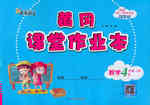题目内容
The boy works much harder than he used to. Last night he________until his mother asked him to.
A.went to bed B.did homework C.didn't do homework D.began to sleep
练习册系列答案
 中考利剑中考试卷汇编系列答案
中考利剑中考试卷汇编系列答案 教育世家状元卷系列答案
教育世家状元卷系列答案 黄冈课堂作业本系列答案
黄冈课堂作业本系列答案
相关题目
题目内容
The boy works much harder than he used to. Last night he________until his mother asked him to.
A.went to bed B.did homework C.didn't do homework D.began to sleep
 中考利剑中考试卷汇编系列答案
中考利剑中考试卷汇编系列答案 教育世家状元卷系列答案
教育世家状元卷系列答案 黄冈课堂作业本系列答案
黄冈课堂作业本系列答案